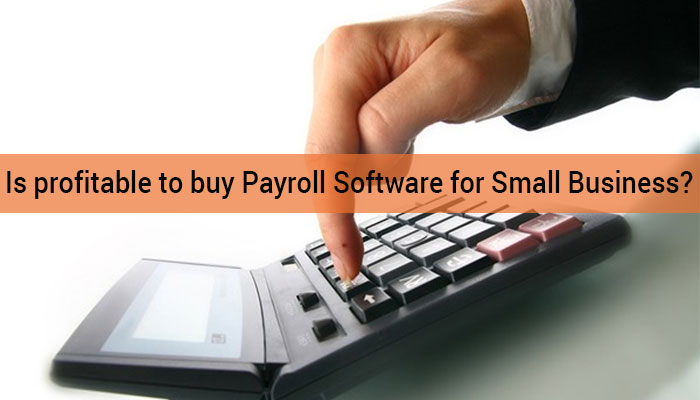Accounting and payroll software for small business is crucial for efficient operation. It streamlines tasks, reduces errors, and frees up valuable time for business owners to focus on growth and strategy. This software offers a comprehensive solution, integrating essential functions from bookkeeping to employee management.
Choosing the right software is essential for a smooth operation. Factors such as scalability, features, and cost should be considered to ensure the software aligns with the specific needs of the small business. This helps avoid potential problems that can arise from an ill-fitting solution.
Running a small business is challenging, but managing finances and payroll efficiently can significantly impact its success. Choosing the right accounting and payroll software can streamline operations, reduce errors, and free up valuable time for you to focus on growing your business. This comprehensive guide explores the essential aspects of selecting the right software solution for your small business needs.
Understanding Your Needs: A Tailored Approach: Accounting And Payroll Software For Small Business
Before diving into software options, it’s crucial to understand your specific requirements. Different businesses have different needs. A bakery will have different accounting needs than a freelance web design agency.
Key Considerations for Choosing Software
- Number of Employees: A software package suitable for a sole proprietor might not be scalable for a company with 20 employees.
- Industry Type: Specific industry regulations and reporting requirements will influence your software choice. For example, a restaurant will need POS integration for order tracking.
- Budget: Software options range from free/open-source solutions to premium packages with advanced features. Consider your budget constraints.
- Scalability: As your business grows, the software must adapt. Look for solutions that can scale with your expanding needs.
- Ease of Use: The software should be intuitive and easy to navigate for both you and your staff. User-friendly interfaces save time and frustration.
Popular Accounting Software Options
Several popular accounting software options cater to small businesses. Some notable examples include QuickBooks, Xero, FreshBooks, and Wave.
QuickBooks: A Classic Choice, Accounting and payroll software for small business
QuickBooks is a well-established choice, known for its robust features and user-friendly interface. It handles invoicing, expense tracking, and reporting with ease.
Xero: Cloud-Based Flexibility
Xero offers a cloud-based solution, enabling remote access and collaboration. Its intuitive interface and affordable pricing make it an attractive option for many small businesses.
FreshBooks: Focus on Invoicing
FreshBooks is a popular choice for its excellent invoicing features. It streamlines the invoicing process and offers robust reporting.
Wave: A Free, Open-Source Option
Wave is a free and open-source option that’s suitable for very small businesses. It offers basic accounting tools without significant cost.
Payroll Software: Streamlining Employee Compensation
Payroll software simplifies the process of calculating and distributing employee wages, deductions, and taxes. Accurate and timely payroll is crucial for maintaining employee satisfaction and avoiding legal issues.
Integration with Accounting Software
Ideally, your accounting and payroll software should integrate seamlessly. This avoids data entry errors and ensures accurate financial records.
Choosing the Right Solution: A Step-by-Step Guide
Choosing the right software is a critical decision for any small business. Follow these steps for a smooth transition.

Source: saginfotech.com
- Define your specific needs.
- Research and compare different software options.
- Request demos and free trials.
- Consider the support and training options available.
- Evaluate the software’s scalability.
Frequently Asked Questions (FAQs)
- Q: What is the difference between accounting and payroll software?
A: Accounting software manages your overall financial records, while payroll software handles employee compensation and taxes.
- Q: Can I use one software for both accounting and payroll?
A: Yes, many software solutions offer integrated accounting and payroll features.
- Q: What are the benefits of using accounting and payroll software?
A: Improved accuracy, reduced errors, time savings, better financial insights, and compliance with regulations.
- Q: How much does accounting and payroll software cost?
A: Costs vary depending on the features, number of users, and chosen plan.
Conclusion and Call to Action
Selecting the right accounting and payroll software is essential for the smooth operation and growth of any small business. By carefully considering your specific needs and comparing various options, you can choose a solution that aligns with your budget, scalability, and ease of use requirements. Don’t hesitate to explore free trials and seek recommendations from other small business owners.
For further insights, check out these resources:
Ready to streamline your business finances? Contact us today for a personalized consultation and let us help you find the perfect accounting and payroll software solution for your small business.
In conclusion, accounting and payroll software for small businesses is a powerful tool for improved efficiency and accuracy. By leveraging these solutions, businesses can optimize their financial processes and focus on core competencies. This, in turn, leads to greater profitability and sustainable growth. The right software is a key component of long-term success.
Top FAQs
What are the common security concerns when using accounting and payroll software?
Security is paramount. Small businesses should prioritize robust security measures, such as strong passwords, multi-factor authentication, and regular software updates. Data encryption and secure storage are also critical. Implementing these safeguards protects sensitive financial and employee data from unauthorized access.

Source: website-files.com
How can small businesses choose the right software for their specific needs?
Careful consideration of factors like business size, industry, and specific needs is crucial. A comprehensive assessment of existing processes and future growth plans is vital. Trial periods and demos of potential software options can help assess their capabilities and suitability.
What are the typical costs associated with implementing accounting and payroll software?
Costs vary depending on the chosen software, features, and the support level. Subscription models are common, with costs ranging from monthly to annual fees. Factors like the number of employees and the volume of transactions also influence pricing. A thorough comparison of pricing structures and associated features is recommended.